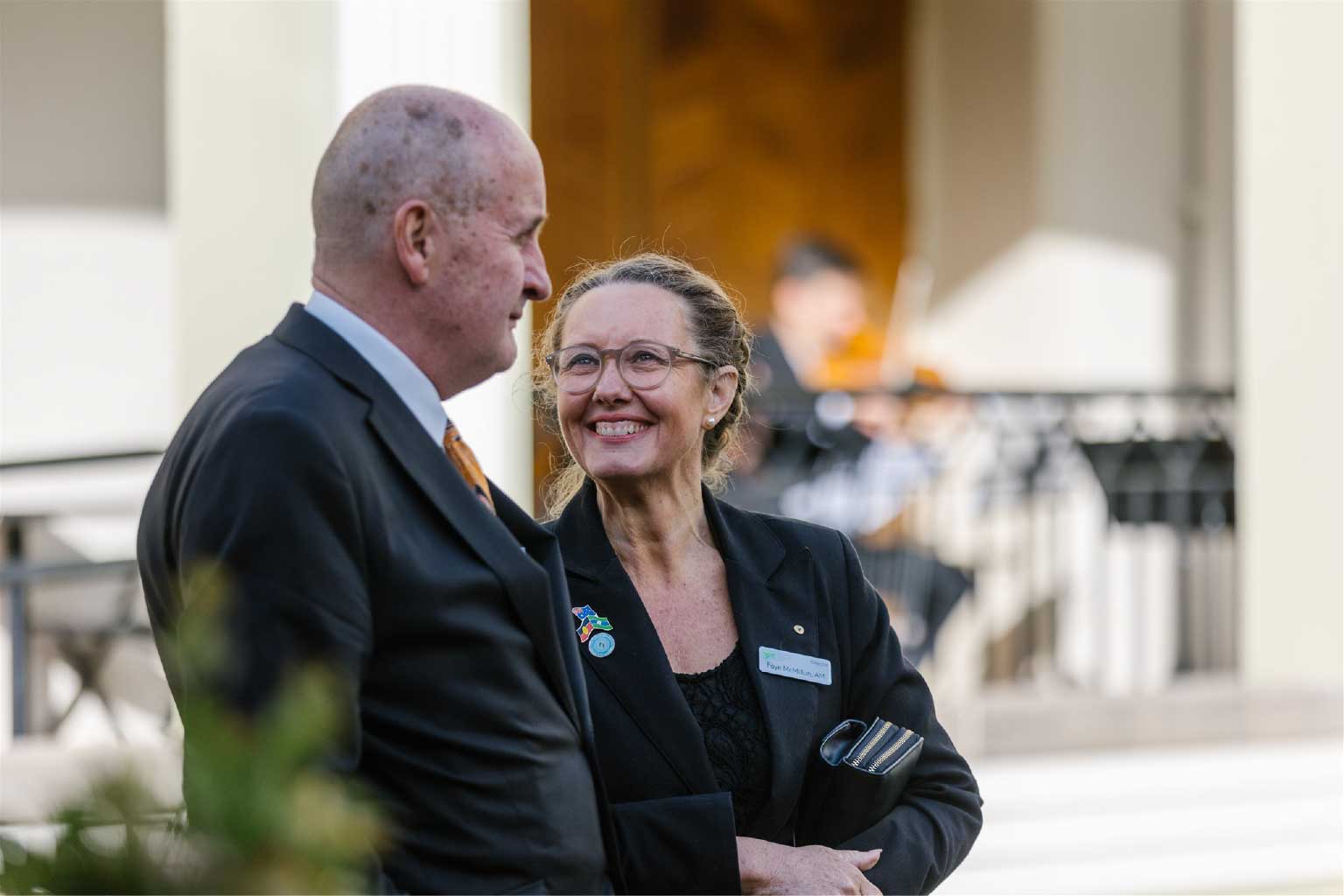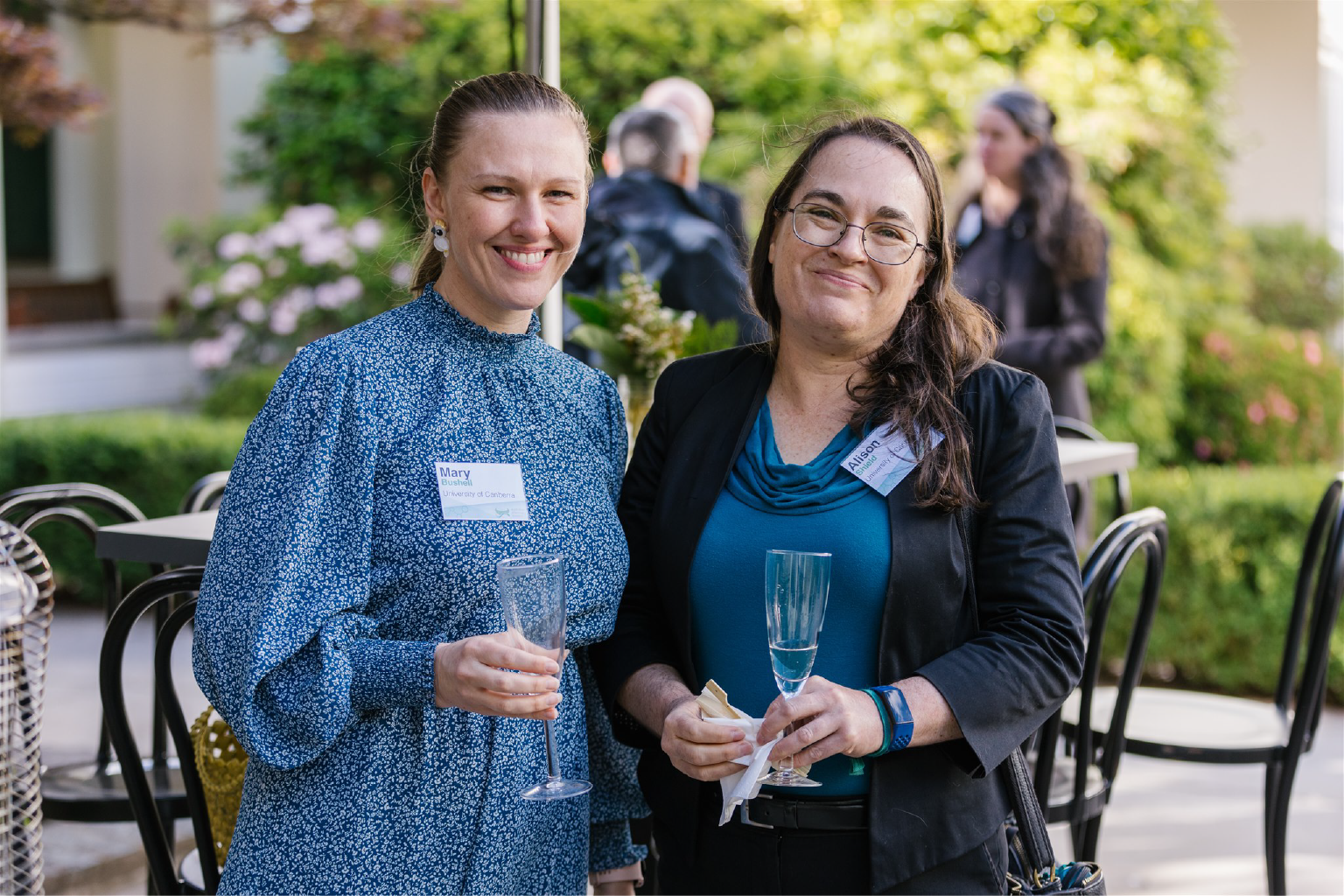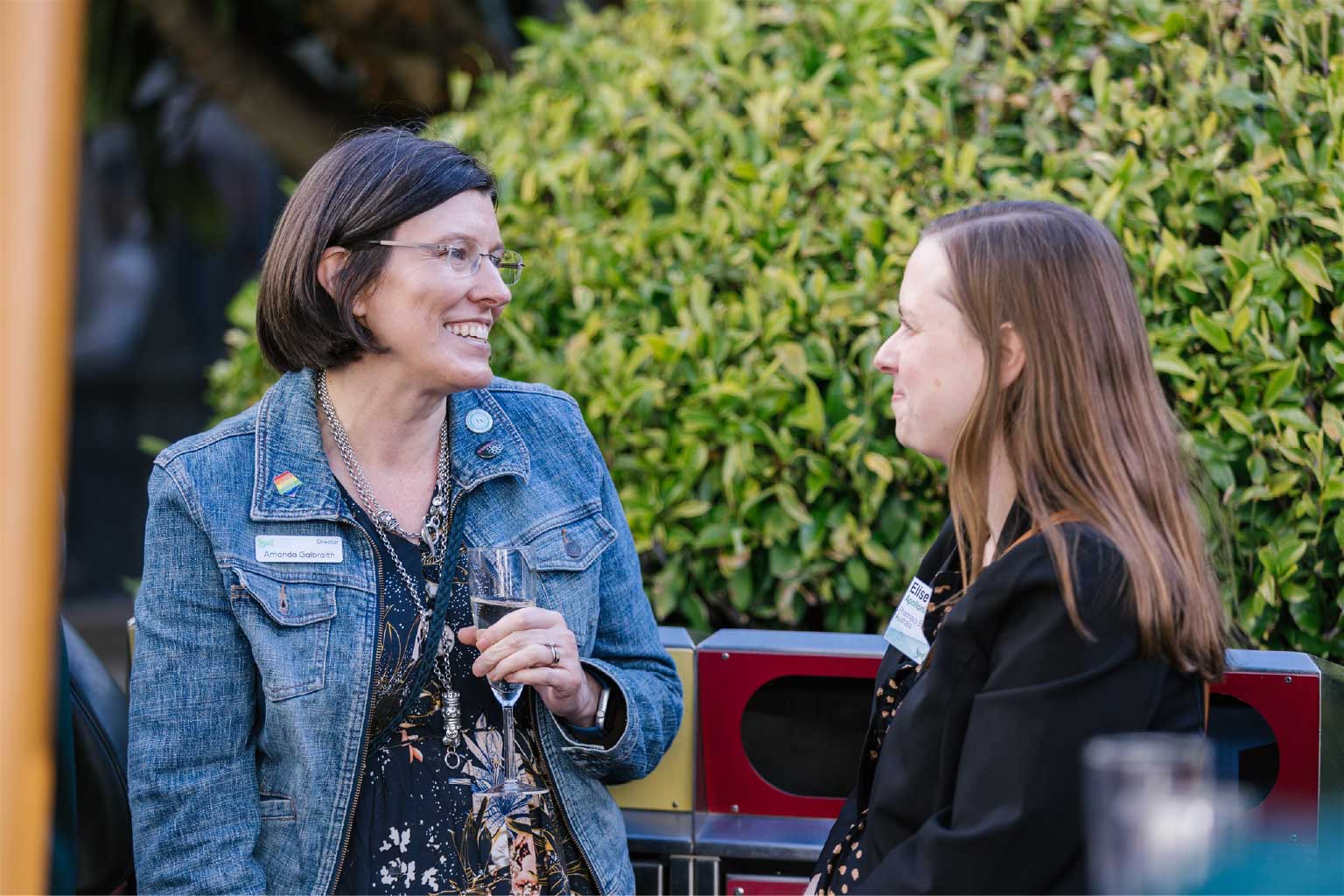



Since 1982, APC has played a role in assuring quality in pharmacy education.
Our growth and the trust placed in APC is testament to the calibre of leadership and staff over 40 years. It's positioned APC at the forefront of standard setting for education and training, whilst innovation and flexibility have ensured we remain dynamic in responding to the changing needs of Australian communities.
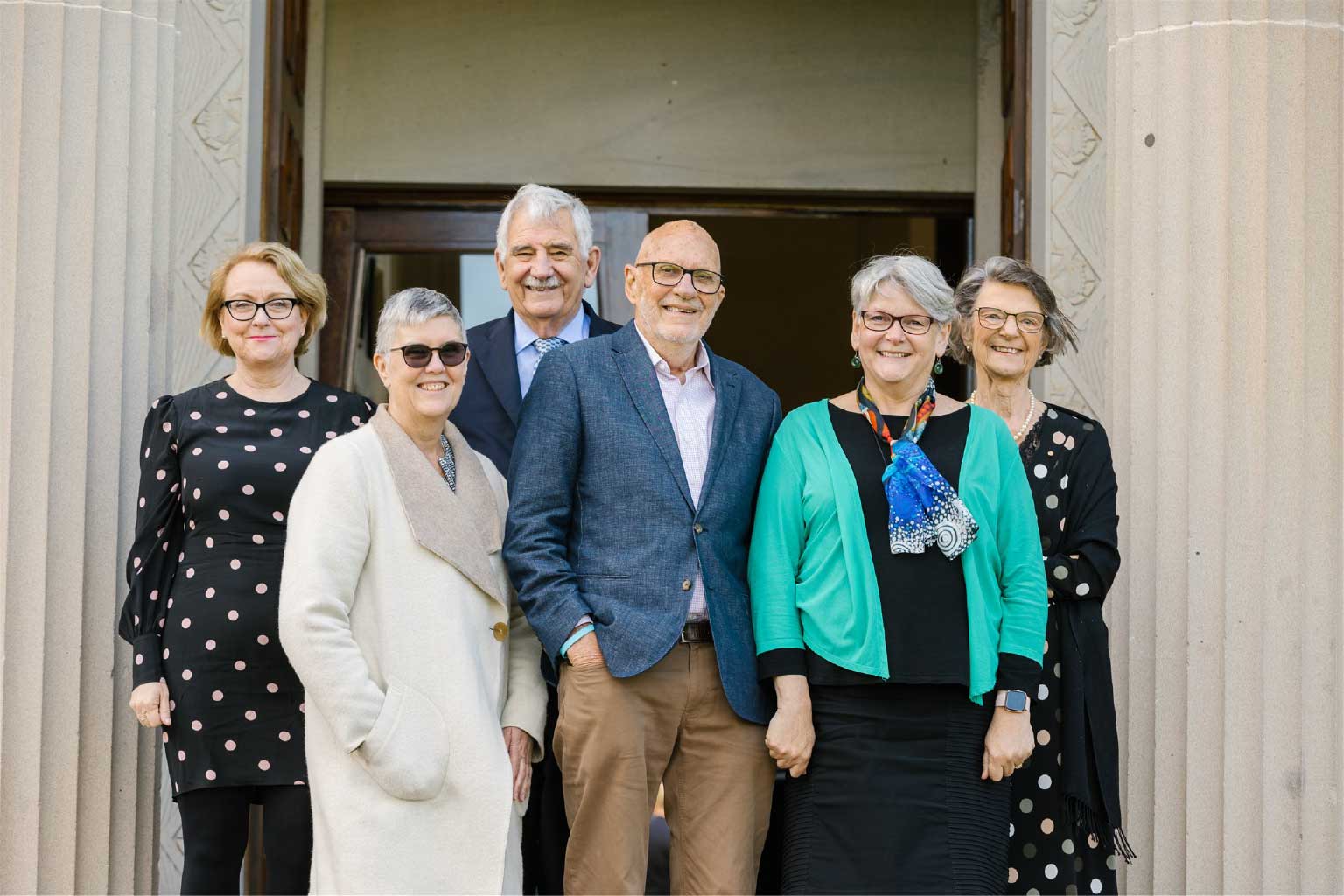
Pictured: Debra Rowett, Sue Kirsa, Lloyd Sansom, John Low, Bronwyn Clark, Elizabeth Frost
Pictured above are APC's former and current Presidents, Chairs and CEOs together. We've come a long way since developing the first examinations for overseas-trained pharmacists in 1982. Back then we were called the Australian Pharmacy Examination Council (APEC) and were led by the renowned Emeritus Professor Lloyd Sansom AO. To this day, Emeritus Professor Sansom still contributes to the development of APC's exams. He spoke about his time with APC at our 40th anniversary panel, facilitated by our leader and Chair Associate Professor Sue Kirsa.
"In that period, the examinations were in a brown box tray, and all the questions on yellow cards. And they were kept under Bruce Hater's bed. And to do the examination, you got a knitting needle and you put it through the cards and lifted it up. That was the degree of sophistication we exhibited in the 70s.
"Back in 1971, I don't think anyone around the table even knew how to spell psychometrics. Never heard of it. And then we hired Peter Robinson, and all of a sudden, we had a scientific basis. What we've got now are examination processes as rigorous as I have ever seen. [They] are defensible, are relevant. Compared to the yellow cards under the bed, we've moved an enormous way," Professor Sansom said
On candidate numbers he said in 1995, there were 28 candidates from overseas who sat the examination. In 2000, there were 128. In 2022 there were 1157. And that's only the overseas candidates.
"The past should always be celebrated, and we should learn from the past. But you can't change the past, you can only change the future. Only the future can be moulded to one which is the preferred future.
"If you want to do that, then you'll have to commit to excellence, to boldness of leadership, preparedness to change, and reinforcement of the fundamental principles of human rights and dignity. APC has shown itself and continues to show itself to be ready for that challenge for the future. So, happy birthday APC," Emeritus Professor Sansom said.
Watch this short video from our 40th anniversary event:
In 2007 we became the Australian Pharmacy Council. Alongside examination development, we are now leaders in the development and implementation of outcomes-based accreditation standards and performance outcomes for pharmacy nationally and internationally.
Former APC President Professor Debra Rowett spoke on the journey to national registration and accreditation and recognised the importance of tying those together at a national level. She commented on the development of the accreditation standards in the lead up to the National Registration and Accreditation Scheme (NRAS).
"The profession of pharmacy really at that time led a focus on outcome-based accreditation standards. Perhaps in advance of the other health professions, we were really looking at what the outcomes were. That was an important change. And we've had 2 iterations since then," said Debra.
APC Board Director, Associate Professor Kirstie Galbraith, explored how APC is responding to the changing nature of healthcare.
"What we're finding now is that the accreditation standards are nimble enough to support where pharmacy education might go in the future.
"We don't have a crystal ball, but there might be a number of models that come about for pharmacy education. The accreditation standards now incorporate both undergraduate and intern programs, they're flexible to cover integrated programs, they're a solid framework for whatever direction our profession decides pharmacy education might go in. And they allow us to be consistent with practice we're seeing internationally.
"Because APC is recognised as leaders in having a lot of expertise in the development of standards, what we've seen now is that, as new and extended scopes of practice are described and defined, APC is in a really good position to support that via the development of standards," Kirstie said.
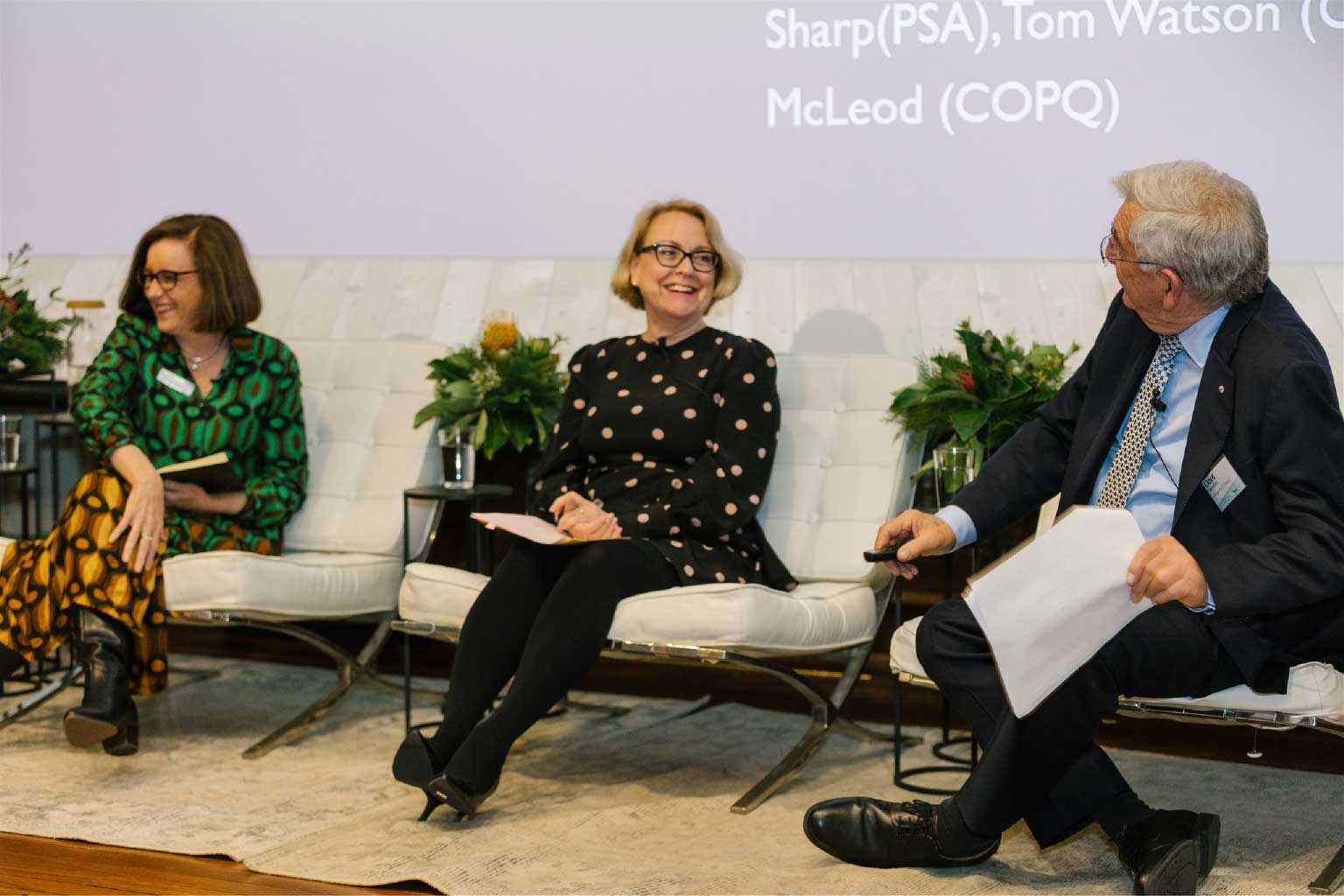
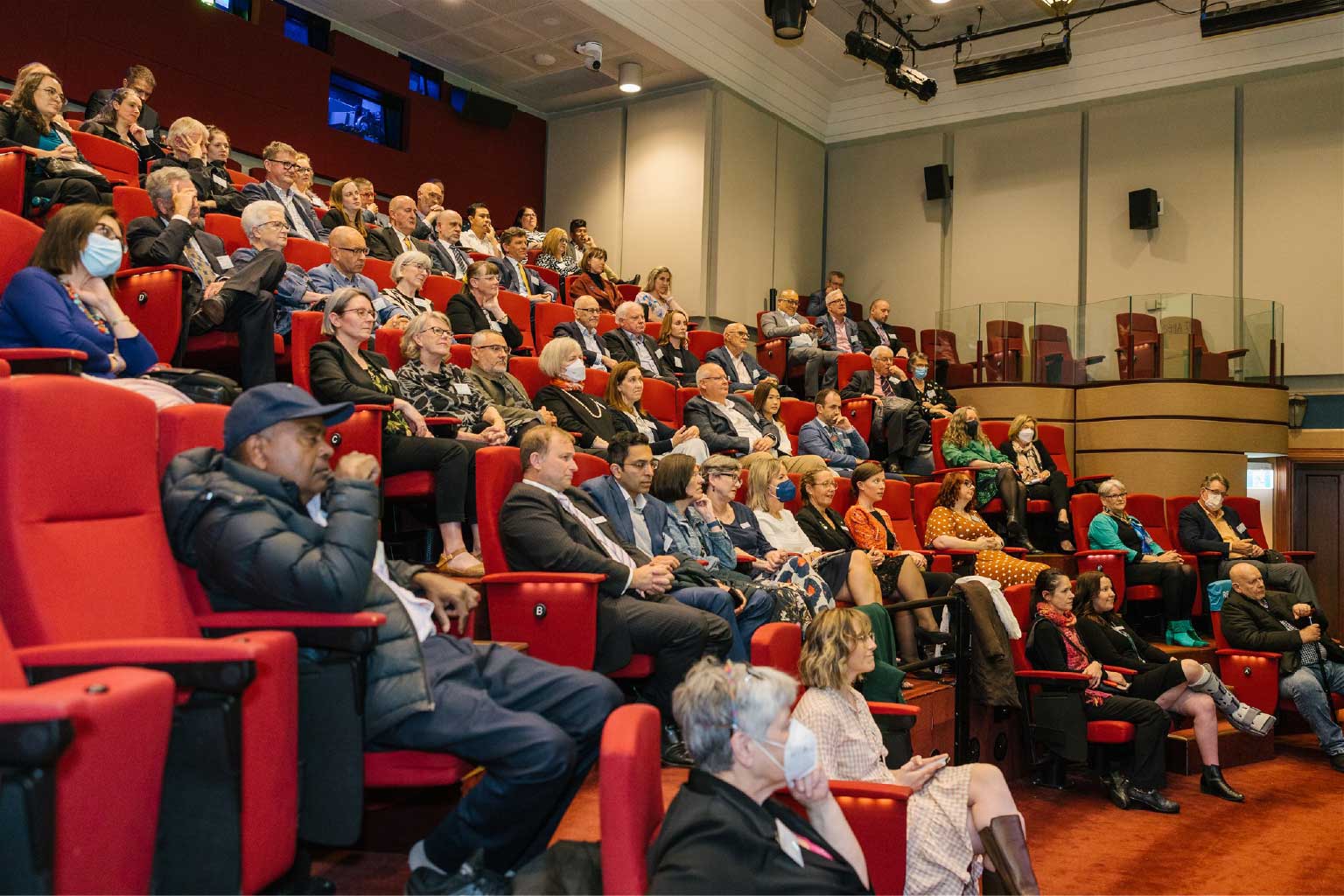
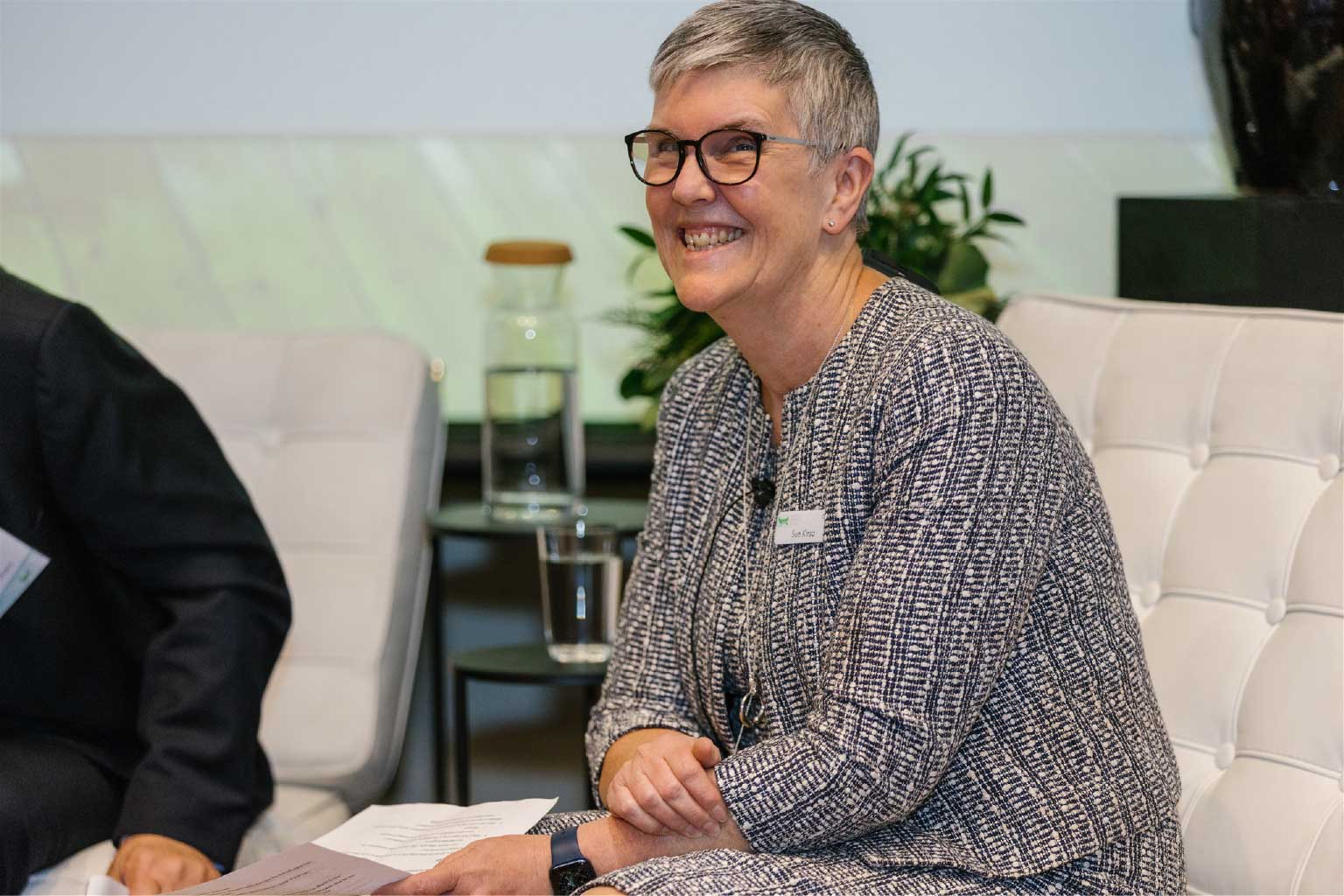
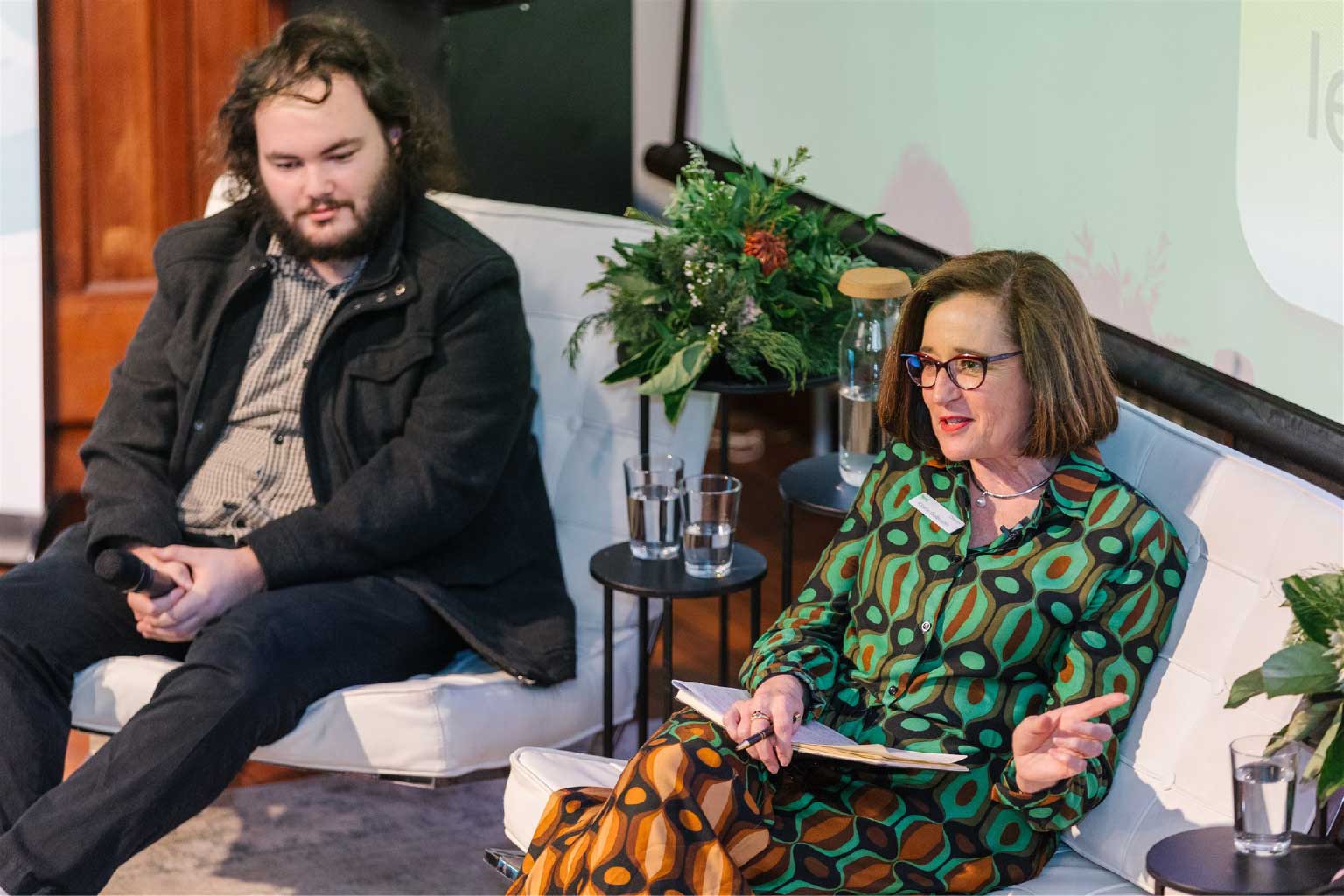
We heard from Alex Burke, Wiradjuri man and PhD candidate, who described the changes he's seeing within pharmacy education and what he wants to see change.
"Something I didn't get to do as a student was interprofessional learning, which is now big part of the degree. Students value seeing what the role of the doctor is, and what the role of the nurse is. It's something I would have liked to do."
Alex appreciates the importance that is being placed on embedding cultural safety within pharmacy education.
"Especially with the move from cultural competence, which is a one-and-done thing, to cultural safety which is a life-long journey. You'll never be able to be competent in this type of thing, it's something you're always going to have to learn," Alex said.
Alex expressed that universities have a role to play in building a bigger Aboriginal pharmacy workforce, and highlighted APC's role in supporting universities to embed cultural safety into their curriculum.
Sue Kirsa asked the panel where the future of this profession will be in 5 - 10 years.
Alex wants to see every pharmacist taking time to engage and talk with their patients, both about their medications and wellbeing. Importantly, he wants to see more pharmacists who are Aboriginal and Torres Strait Islander.
Kirstie would like all pharmacists to be able to practise to the extent of their scope in whatever way they want to. We'll see variations of practice, less barriers and more opportunities to extend the contribution they're making to patient care.
Debra says pharmacists won't be defined by where they work, but by the contribution they make to patient care. It will be less about being defined by their physical environment, and more about their impact. She also says we'll be more integrated in interdisciplinary teams, working both intra and inter professionally.
Emeritus Professor Sansom expressed that the future is locked in with the future of healthcare. He says we have to see an absolute revolution in healthcare delivery, and we can either direct it and participate in it or yell from the side-lines.
